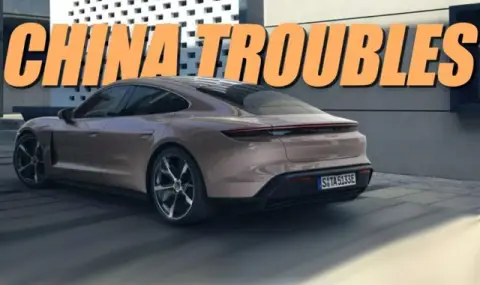The declining popularity of electric cars has also affected China, and this is most felt by European brands and reveals a huge problem especially for the so-called. premium brands from the Old Continent. Over the past three years, European automakers have lost 15 percent of their market share in the EV segment above $35,000.
For example, Porsche's deliveries to China fell 15 percent in 2023 and continue to worsen this year, forcing dealers to cut prices for electric vehicles. According to a report by Jiemian News, many dealers have asked Porsche to compensate their losses in the form of subsidies for new equipment.
However, the German premium brand has so far refused to fulfill their demands and it has even become clear that Porsche China has decided to temporarily stop sending them new cars. Last week, Porsche and its dealers in China issued a statement saying they are facing challenges and will work together to find effective ways to respond to market changes.
Given the relevant tariffs and price wars for electric vehicles, European manufacturers may have to change their strategy in China. The Celestial State is the largest car market in the world in terms of both demand and supply. In 2023, the number of registered cars in China will increase to about 25.8 million units, which is about 11 percent of global registrations worldwide.
According to the Wall Street Journal, Porsche deliveries in China fell 24% in the first quarter of this year compared to the previous year, and Ferrari deliveries fell 25%. Mercedes-Benz and BMW also sold significantly fewer cars in China in the first quarter than a year ago.
Chinese electric cars in the domestic market are not only becoming more affordable, but are also seen as a viable alternative to the premium segment traditionally dominated by Germany. German brands are still favored by buyers of cars over $48,000, but the market is changing.
Companies such as BMW, Mercedes-Benz and Audi previously dominated the segment above $34,500 with a 60 percent market share in 2020. Within three years, however, this share dropped to 45 percent, with the main companies displacing them being Tesla and BYD and Li Auto.
